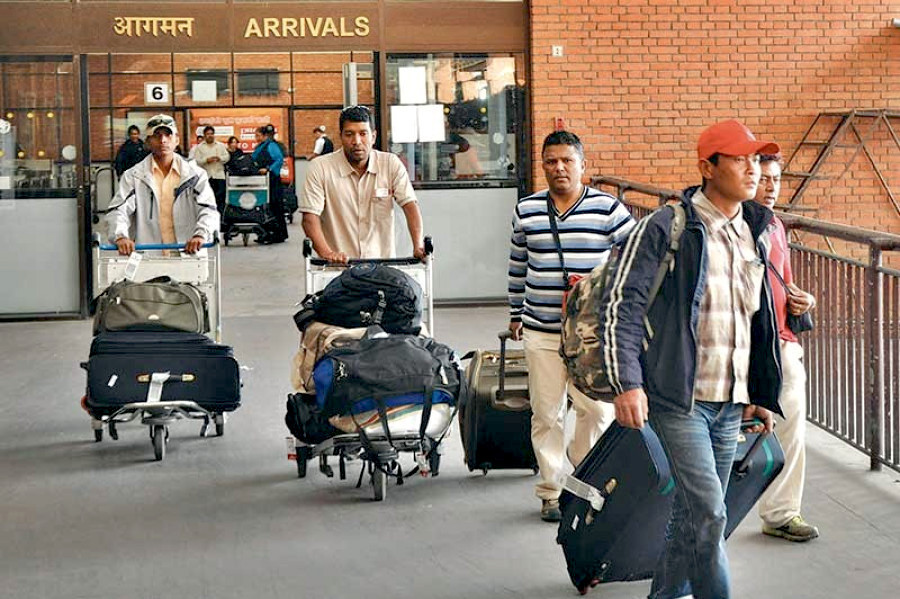National
Migrant workers suffer as government due to delay in drafting of workers’ repatriation guidelines
Many workers are returning home with their own expenses while those without money continue to languish overseas.
Chandan Kumar Mandal
On June 15, the Supreme Court gave an interim order, asking the government to bring home Nepali migrant workers who were stranded abroad and were unable to pay for their return.
Responding to a writ, the apex court had asked the government to immediately rescue the vulnerable Nepalis utilising the Migrant Workers’ Welfare Fund.
The court had also directed the government to draft a set of guidelines to evacuate the stranded workers with the state expenses. More than a week has passed since the court’s order, and the government has yet to prepare the guidelines to bring home the stranded workers.
With help not forthcoming anytime soon, many Nepali workers have started returning home at their own expenses and those who cannot manage the airfare continue to languish in various labour destination countries.
On Saturday alone, 1,450 Nepalis returned home on eight different flights. Except for the flight, which brought home 250 Nepalis from Bangaladesh, the remaining flights had come from labour destination countries like Qatar, Saudi Arabia, the United Arab of Emirates, Kuwait and Malaysia.
The government repatriation plan has said that the workers will have to pay for their flights if their employers and the host nations are not footing their air tickets.
The plan to repatriate Nepali workers in a dire need to return home has been already criticised for making the workers pay for their air tickets and for staying in quarantine facilities.
According to Som Luitel, a lawyer with expertise on migrants rights and one of the petitioners, the government should have immediately come up with the guidelines to repatriate the migrant workers who are in a vulnerable state.
“Following the Supreme Court order, a meeting was called on Friday to form a committee to draft the guidelines,” Luitel told the Post. “Drafting the guidelines should not take long.”
As per the interim order, the government had to formulate the workers’ repatriation guidelines in consultation with the petitioners and other stakeholders.
According to Suman Ghimire, the spokesperson with the Labour, Employment and Social Security Ministry, the government has moved ahead with drafting of the guidelines with priority.
But delays in the drafting of the guidelines have affected thousands of workers.
The first phase of the government evacuation plan also said that workers stranded without jobs will be prioritised, which means the same desperate group of workers are ending up paying for expensive chartered flights.
“If the guidelines are formulated and implemented, many desperate workers can return home early. In the absence of the guidelines, workers are struggling to manage airfares. Workers are not even able to borrow from others to buy tickets,” Luitel said.
Luitel has suggested that the government compensate those workers who have returned home at their own expenses.
“Any further delays will only perpetuate confusion and uncertainty among workers, who are not sure whether to buy the air tickets themselves or wait for the government help,” said Luitel. “Workers are surviving on foods given by others. They are also seeking loans. They are going through psychological stress because of the government’s inaction.”




 14.24°C Kathmandu
14.24°C Kathmandu















